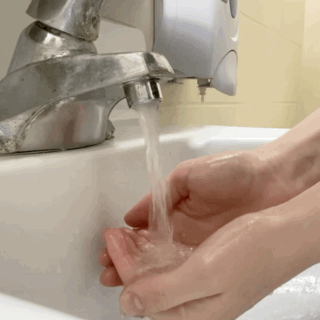COVID-19 isolation orders changed how state agencies ensure the safety of the roads, and who travels on them.
On a state level, traffic is down throughout the board, but that doesn’t mean state agencies aren’t active. Paul Wappel is a spokesman for the Illinois Department of Transportation. He said workers are still engaged in maintenance work.
“Transportation is deemed an essential service. We are maintaining the roads, and the bridges, making sure they’re still in good shape.”
Wappel said this work, particularly construction, is on schedule. But he notes some adjustment have been made.
“The workers who are out and about, they wash their hands frequently when they can," he said. "When they have to have a meeting, they do social distancing, or a conference call if they have to. You know, just doing what they’re supposed to do.”
Aside from the roads themselves, IDOT continues to maintain rest areas along highways and interstates. Wappel says these facilities are particularly important for truck drivers transporting supplies.
“Whether it’s food and/or medical supplies, they need a place to stop and rest, and we’re making sure the rest areas are cleaned and disinfected frequently.”
Some state agencies have scaled back their operations. The Illinois Tollway has switched to all-electronic toll collection and shut down its customer service centers at its oases.
Illinois State Police remain on duty, but a statement notes that officers have shifted to a “reactive patrol posture.” Specifically, they will focus on calls for assistance, securing state medical facilities and critical shipments, and helping with traffic flow at drive-thru testing facilities. Wappel said that change in focus might tempt some drivers to break the rules. He strongly advised against this:
“Frequently we’re saying, 'Hey please, if you’re out and about, if you have to go out, please slow down, obey the speed limit, and absolutely be extra careful near any construction zones.'"
And as always, he said, avoid distraction, particularly in those zones.
“We want to make sure that all the workers are protected and safe, so they can do their job," he said. "They have families too. They have loved ones out there as well.”
While trucks and larger vehicles have a presence on state and national routes, many local roads are being used for deliveries. Michael Oswalt is a law professor at Northern Illinois University. Oswalt says there’s been a shift in the gig economy’s focus from humans to goods.
“Ride share work has largely bottomed out. Many in-home services companies like TaskRabbit have as well, but the delivery jobs are really in great demand.”
Oswalt says Uber and Lyft drivers have transitioned to more product-based services, such as Uber Eats, Grubhub, and Instacart. Companies, in response, are hiring additional delivery drivers. Instacart itself plans to add 50,000 new Illinois employees and both Wal-Mart and Amazon are hiring more workers.
And he says those service workers have become particularly important during the pandemic.
“Our groceries are delivered, our diapers are packed and shipped. Our weekend restaurant meals dropped off by workers putting their health on the line for the good of the public,” he said.
Both IDOT and ISP aim to ensure state roadways stay orderly during the COVID-19 pandemic. But ultimately, safety on a highway or neighborhood street comes down to the person behind the wheel.


